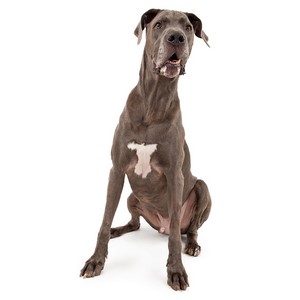Great Dane Lifespan
Owning a Great Dane Dog and want to know how long do Great Dane Dogs live for?
According to Australian breed survey, an average lifespan of Great Dane Dog is 7-10 years with some living 2 years more that what is expected.
How Long Can a Great Dane Live?
-
If you own or thinking to have a Great Dane, understanding the Great Dane Dog life span is important when caring for these dogs.
"How long do Great Dane Dogs live" is one of the hardest question, many pet owners ask themselves.
We all know that these Great Dane Dogs cannot live with us forever, so it is important that we understand the perils of old age and their average life expectancy of Great Dane.
There are many factors that determine the longevity of Great Dane Dog, including breed, size and the general health of your dog.
These factors can help answer the questions on most Great Dane pet owner’s minds.
How Long Do Dog's Live For?
Lifespans for certain medium dog breeds: Australian Shepherd (12-15 years), Chinese Shar-Pei (12-14 years), Cocker Spaniel (13-15 years), Poodle (12-15 years), Whippet (12-15 years), Puli (10-15 years), Welsh Springer Spaniel (13-15 years), Bulldog (10-12 years), Boxer (10-12 years), Chow Chow (11-13 years), Curly-Coated Retriever (11-13 years) and French Bulldog (11-13 years).
Lifespans for certain large dog breeds: Great Dane (8-10 years), Bernese Mountain Dog (7-10 years), Irish Wolfhound (8-10 years), Newfoundland (10-12 years), Giant Schnauzer (10-12 years), Dogue de Bordeaux (9-11 years), Rottweiler (10-12 years), St. Bernard (10-12 years), Scottish Deerhound (10-12 years), Flat-Coated Retriever (10-12 years), Akita (11-15 years), Anatolian Shepherd (11-13 years), Irish Setter (12-14 years) and Belgian Malinois (14-16 years).
What to do if you lose your Great Dane
If your Great Dane Dog or any other pet has gone missing and it does not have an identification tag with a phone number, you can:
1. List your missing pet details at Pet Reunite website here.
2. List the missing pet on the Local Lost Pets Facebook Groups Here.
3. Visit the local vets to see if someone has brought in your missing pet.
4. Telephone the RSPCA or Visit the RSPCA Lost Pets website and complete a Lost Pet Report.
5. Visit Lost Pets Pages of Animal Pounds.
What to do if you find a lost Great Dane
If you find a Great Dane Dog or any other pet and it does not have an identification tag with a phone number, you can:
1. List the found pet details at Pet Reunite website here.
2. Report the missing pet on the Local Facebook Lost Pets Groups.
3. Contact the Local Authority to collect the lost animal.
4. Take the pet to the local Animal Shelter assigned to your suburb.
5. Take the pet to the local Vet who usually scan the animal’s microchip and contact the registered owner of the pet.
Laws Regarding Missing Pets
1. It is against the law to keep any animal that you find.
2. Pets are generally considered property and it is illegal to take and keep someone else’s property.
3. You must call your local animal control unit and file a FOUND AN ANIMAL report for any dog or cat you find.
4. To reclaim your lost dog, cat or other pet from the animal shelter you must pay a release fee.
5. If your dog or cat is unregistered, you will have to register your pet before you can take it home.

